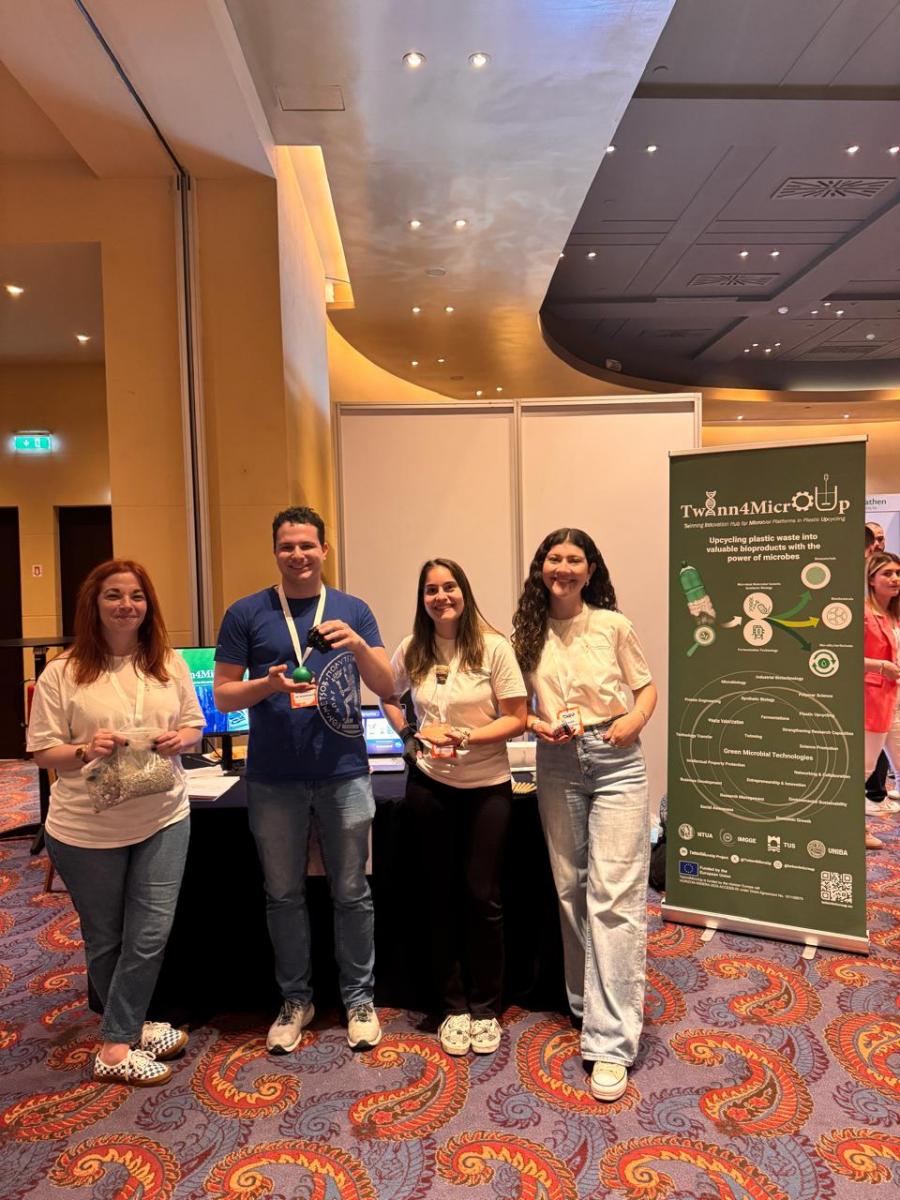ChemExpo 2025 | Catalyzing Digital Evolution
On May 9th , 2025, members of the Biotechnology Laboratory NTUA participated in ChemExpo 2025, a multidisciplinary event organized by Chemecon, the student-led association of Chemical Engineers Connected. The event brought together over 300 attendees to explore how digital technologies are transforming the field of chemical engineering. As part of the TwInn4MicroUp project’s engagement activities, the NTUA Biotechnology Lab hosted a dedicated exhibition booth, where students, researchers, and professionals had the chance to explore how biotechnology can help tackle one of today’s most critical environmental challenges—plastic pollution.
Visitors at the booth were introduced to cutting-edge microbial and enzymatic approaches for plastic waste degradation and valorization. The lab showcased mechanically pre-treated plastic samples, 3D enzyme models, and live microbial cultures that can convert plastic waste into value-added bioproducts, such as nanocellulose and biopigments. These displays helped illustrate how microbial upcycling feeds into a circular bioeconomy, offering a sustainable alternative to traditional waste management. To enhance visibility and knowledge-sharing, the booth also featured video displays highlighting key lab methodologies and digital tools used in the research.
Informative flyers and branded promotional materials—including TwInn4MicroUp-themed pens and bookmarks—were distributed to attendees, sparking conversations around synthetic biology, environmental sustainability, and green innovation. Additionally, a presentation by the lab emphasized the role of artificial intelligence, computational modeling, and digital workflows in accelerating research on enzyme-plastic interactions and microbial engineering.
The event served as an excellent platform to network with students, academics, and industry professionals, fostering new collaborations and raising awareness about the lab’s ongoing research under the TwInn4MicroUp project.
Events like ChemExpo play a crucial role in bridging science, innovation, and education—bringing biotechnological solutions to the forefront of environmental action.

